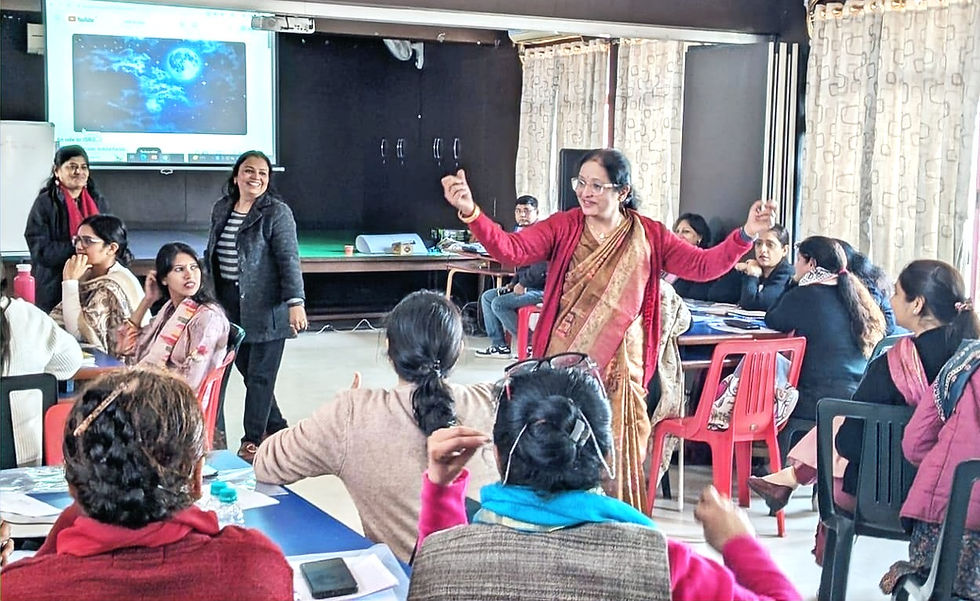Empowering Democracy: Unveiling the SVEEP Programme
- Ramaa Shankar

- Jan 12, 2024
- 2 min read
Updated: Jan 13, 2024

As an advocate for civic participation and electoral education, I recently had the incredible opportunity to contribute to the Election Commission's "SVEEP Program." This initiative, Systematic Voters Education and Electoral Participation, aims to universally enlighten citizens about the importance of participating in the electoral process.
The overarching vision of the SVEEP Program is to achieve an enlightened and empowered citizenry, ensuring every eligible individual is registered as a voter. The specific goals are ambitious but achievable –a voter turnout of at least 75% in the upcoming Lok Sabha elections of 2024, reducing the gender gap, fostering inclusivity, especially for the specially challenged, addressing urban apathy, and instilling a sense of pride in voting.
My role in this transformative journey was to connect with students and impart the SVEEP vision. This vision encapsulates the idea of universal enlightened participation, with an emphasis on engaging citizens from the grassroots level – right from the booth level to the national level. The objective was not merely to increase the number of voters but to build a foundation of ethical and informed voting.

Schools play a crucial role in this endeavor, with focus on establishing Electoral Literacy Clubs. It extends beyond the school premises, encouraging students to assist senior citizens, farmers, and minorities in exercising their voting rights. Special attention was given to overseas voters, with a clarion call to encourage them to be part of the democratic process.
The approach was "bottoms up," emphasizing a comprehensive strategy starting from the grassroots. This involved constituency-level initiatives, district-level coordination, state-wide efforts, and finally, a nationwide impact. To accomplish these objectives, capacity-building programs were identified as key components. These included mentoring, training, monitoring, and budgeting, all geared towards ensuring universal, enlightened, and ethical voting practices.

Reflecting on my contribution to this initiative, I see it akin to the role of a squirrel in the construction of the Ram Setu – perhaps small in scale but vital to the overall success of the endeavor. Regardless of the scale, the joy derived from reaching out to children and enlightening them about the significance of their role in democracy was immeasurable.
In conclusion, the SVEEP Program stands as a beacon of hope for a more participatory and inclusive democracy. My journey with this initiative has reinforced the belief that change begins at the grassroots level, and every effort, no matter how small, contributes to the larger tapestry of a vibrant and engaged democratic society.
Join me in the pursuit of universal enlightenment and ethical voting – let's SVEEP in a new era of democracy together.





















Comments